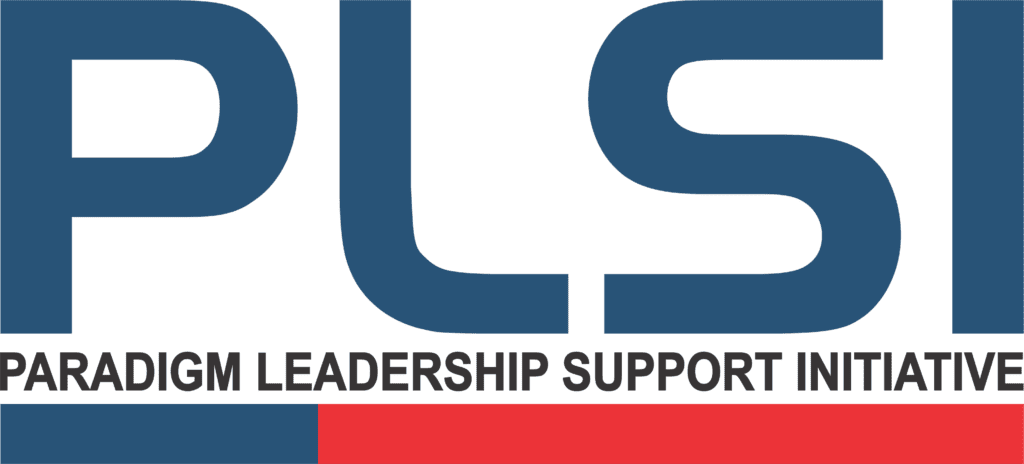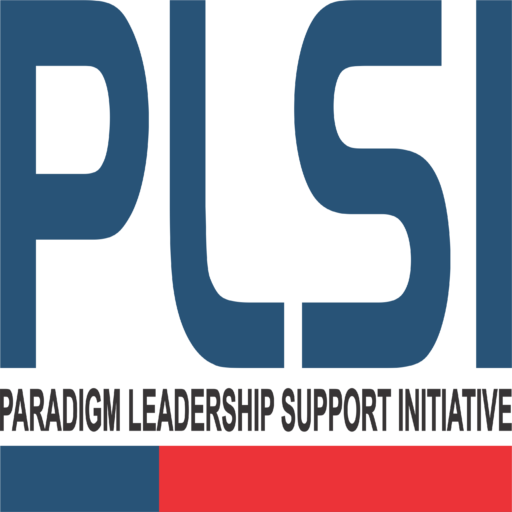Distinguished guests, esteemed colleagues, and fellow accountability champions, I bring you greetings from the Chair, Board of Trustees of the Women’s Rights Advancement and Protection Alternative (WRAPA) in the person of Hon. Justice Fati Lami Abubakar CON, LLD. It is an honor to address you today at the Nigeria Accountability Summit (NAS) 2024. I am grateful to the organizers for the esteem and opportunity to share and contribute in this gathering of committed stakeholders dedicated to shaping the future of our nation. As already established from yesterday, the Summit is convened at a time when Nigeria stands at a critical point in its development path.
The theme and objectives of this Summit resonate deeply with WRAPA in its call for social justice through institutionalized accountability policy and mechanisms that reduce vulnerabilities and award equal opportunities to all. This establishes a common goal of enhancing accountability measures for effective policy implementation to ultimately improve the quality of life for Nigerians. This further aligns with the ongoing efforts of civil society organizations, government agencies, and private sector actors to foster transparency, justice, and equality across the nation.
The Summit’s focus on the 8-point agenda of the federal government, covering priority areas also provides objective measurable templates for assessing performance within a holistic approach for achieving sustainable progress. The issues of economic reforms, national security, agriculture, energy, infrastructure, human capital investment, diversification, and governance, are the pillars upon which Nigeria’s future rests. The discussions today must therefore be guided by a shared vision of seizing opportunities, addressing challenges, and charting a path towards accelerated national development, especially at the sub-national level.
As we gather to assess progress in these critical areas, we must recognize both the achievements and the roadblocks. I would not bore you with statistics, analysis or the isms of development arguments, because the realities are bear and felt by a majority of Nigerians. Arguments either way abound about the progress being made. On the one side, strides in economic reform are said to have led to some degree of stability, and investments in infrastructure have paved the way for potential growth. Conversely, there remain significant gaps in policy implementation, a challenge that hampers our ability to reach the full potential of the government’s agenda. It is our responsibility to identify these accountability saps. explore the reasons behind them, and develop concrete solutions that drive effective service delivery and tangible change in the lives of our citizens.
For instance, while efforts to boost agriculture have yielded gains in some regions or products, others still grapple with issues like inadequate access to markets, tools/inputs, skewed pricing. poor infrastructure, and insufficient investment in technology. These compound vulnerability and reduce the capacity of farmers to demand for accountability. In the area of human capital, reforms in education and healthcare have been initiated, however, weaknesses in accountability in implementing the reforms leave many communities underserved. The energy sector continues to face structural challenges, with energy access remaining a persistent barrier to economic growth and human development. These examples illustrate the need for a concerted effort to enhance transparency and governance practices across all sectors, most urgently dislodge corruption and shoot down impunity.
While the mantra of hope has propelled government’s pursuit of reforms, the true measure of success lies not only in policies and programs but in the tangible improvements experienced by ordinary Nigerians. Today, we must ask ourselves; have these policies and initiatives brought the promised change to our citizens? Are we truly progressing toward a more secure, prosperous, and equitable society? These questions challenge us to go beyond mere rhetoric and focus on results. Answers to these questions must be the measure of accountability to Nigerians, evidenced by a visible and deep reduction of vulnerabilities in public and private lives.
In the area of economic reform, progress is said to have been made in stabilizing some macroeconomic indicators, however, the lived reality for many Nigerians remains one of struggle, rising inflation, unemployment, and poverty which continue to take their toll. Similarly, despite considerable investments in infrastructure, numerous communities remain without access to basic amenities such as safe roads, potable water, and reliable electricity. It is clear that current efforts will not be enough. They need to be backed by a stronger commitment to accountability, rigorous monitoring, and a persistent pursuit of results.
Accountability is more than a slogan; it is the cornerstone of governance. It requires not just the formulation of policies but a dedicated focus on implementation, adherence to standards, and a culture of transparency at every level. To achieve the Summit’s objectives, we must address the accountability gaps impeding the effective execution of policies, legal frameworks, and practice guidelines across all sectors. These gaps, whether due to weak institutions, lack of coordination, or resource mismanagement, are the bottlenecks that hinder us from turning good intentions into impactful outcomes. Corruption as a canker worm must be repelled at every level, including in family settings, where the indices of vulnerability keep weaker members suffering discrimination, abuse and low opportunities.
The task ahead is twofold; first, we must carry out a realistic assessment of the current state of the government’s priority agenda, drawing on data and evidence from diverse sectors to gauge the real and perceived progress made. Second, we must engage in meaningful dialogue to generate actionable recommendations that not only address the gaps identified but also create a Framework for continuous improvement in policy implementation. This Summit presents a unique platform for all stakeholders, including public officials, private sector experts, civil society organizations, and the media, to share insights, build consensus, and align our efforts toward a common goal.
To achieve this, we must place particular emphasis on accountability as a central tenet of our governance structures. It is not enough to formulate policies or enact legal frameworks; we must actively monitor their implementation, evaluate their outcomes, and hold all actors accountable for delivering on their promises or mandates. When there is a gap between policy intentions and the realities faced by citizens, it is a duty to bridge that gap with effective action and strategic collaboration.
As we deliberate, we must bear in mind that the discussions must go beyond identifying problems; they must be solution-oriented, focusing on feasible recommendations that are practical, scalable, and capable of producing immediate and long-term results. The recognition of strategic stakeholders today goes beyond mere acknowledgment; it must signify the importance of their roles in driving forward the agenda of change. We must, therefore, stimulate and nurture support from all quarters especially government, civil society, the private sector, and international partners. The momentum built through the reforms by successive governments, interventions of civil society organizations all supported, by development partners must be sustained. Special mention here is made of the reforms by government and the work of over 100 civil society organizations both supported by MacArthur Foundation, particularly in the las 8 years. Ongoing accountability policy and practice reforms, behavior and social norms changes that recognize and celebrate accountability must be replicated and scaled up and promoted as a culture for generations to come.
In this regard, WRAPA remains committed to working alongside all stakeholders to advocate for policies that protect the rights and welfare of every Nigerian. We will continue to champion initiatives that promote gender equity, social inclusion, and the protection of vulnerable groups, ensuring that no one is left behind as we pursue national development goals. I urge us all to embrace the opportunities that this Summit offers to reassess our strategies, realign our efforts, and reinforce our commitment to accountability. I urge us to focus on three key principles that will guide our approach. First is evidence-based policy making. We must ground our policies in data and evidence, continuously assessing their impact and adjusting strategies to reflect what works. This approach will ensure that resources are allocated efficiently and that interventions reach those who need them the most. For instance, in addressing agricultural development, data-driven strategies can help us better understand regional disparities, enabling targeted support to farmers and boosting productivity in underperforming areas.
Second is inclusive governance. True accountability requires the active participation of all stakeholders, including marginalized and vulnerable groups. For reforms to be sustainable, they must be inclusive, addressing the needs of women, youth, special needs persons, and rural communities. Speaking about investing in human capital, is not limited to building schools or hospitals; it is about creating accessible and affordable quality services that empower every Nigerian to enjoy rights and reach their full potential, bound by law and policy, and guaranteed by equal opportunity.
Third is the strengthening of institutions and the enforcement of the rule of law. Effective governance depends on strong institutions that can enforce laws, uphold standards, and respond to the needs of citizens. As we work to unlock the potential of the energy sector, or secure our borders, lives and livelihoods, we must not lose sight of the importance of regulatory oversight, anti-corruption measures, and judicial independence. These elements are essential for creating an environment where reforms can thrive, and where hope is not just a slogan touted by a privileged few but one aspired and realized by all citizens.
This Summit is not just a chance to share ideas but a call to action. We must leave here with a renewed commitment to accelerate change. Our conversations should lead to a set of concrete recommendations that are practical, scalable, and capable of delivering immediate and long-term impact. We must challenge ourselves to transform our aspirations into results that can be measured in terms of improved living standards, economic opportunities, security and social equity for all Nigerians. Demand and supply sides of governance must take bold steps to ensure that policies translate into actions, frameworks are implemented with commitment, and governance delivers results that truly improve the lives of Nigerians. Collaboration across these sectors is not optional; it is an imperative.
In closing, I leave you with this thought; accountability is not a destination but a continuous journey. This is especially as the political and governance landscape is set to change with local government autonomy. Accountability, which is the practice of consistently upholding principles of transparency, fairness, and justice in everything we do has to be the new normal, building on all the hard work of government, civil society, development organizations. Resilience must be the watchword as we continue to work together to close the gaps and unlock Nigeria’s potential.
Let this Summit be the turning point where our discussions lead to actions that make a real difference. Let us not settle for incremental change when transformative progress is within our grasp. If we harness the power of accountability, we can indeed shape a future where Nigeria thrives on the strength of its people and the integrity of its institutions. Together, Nigerians can accelerate progress, close the gaps, and build a nation that is not only prosperous but just and equitable for all.
Thank you for listening. I wish us all fruitful deliberations and successful outcomes that would be measured and a positive report given at the 2025 Accountability Summit.

